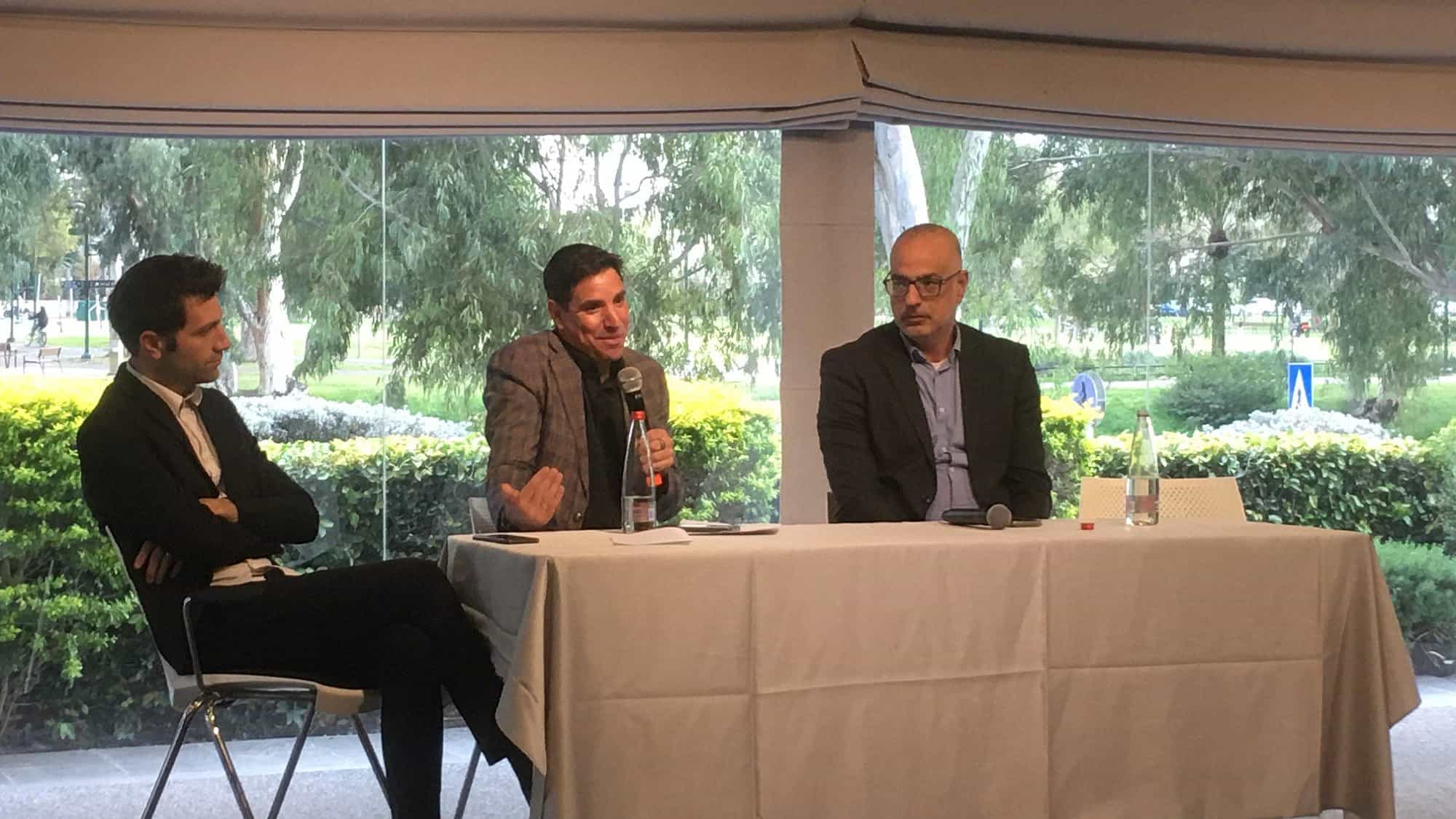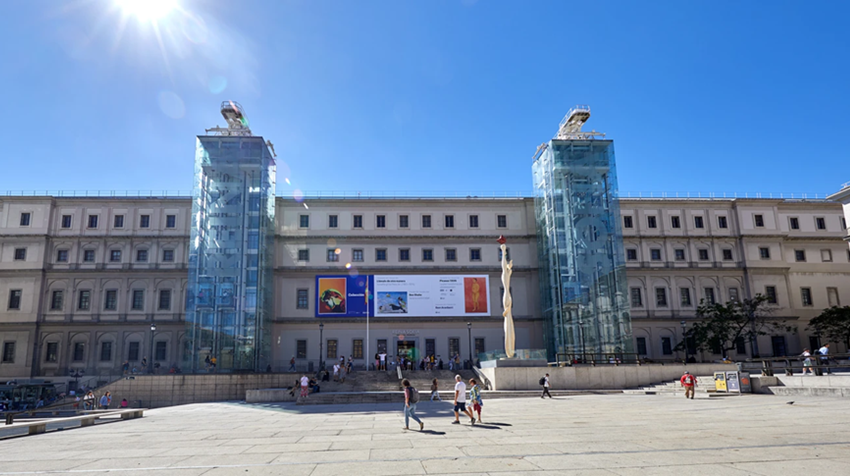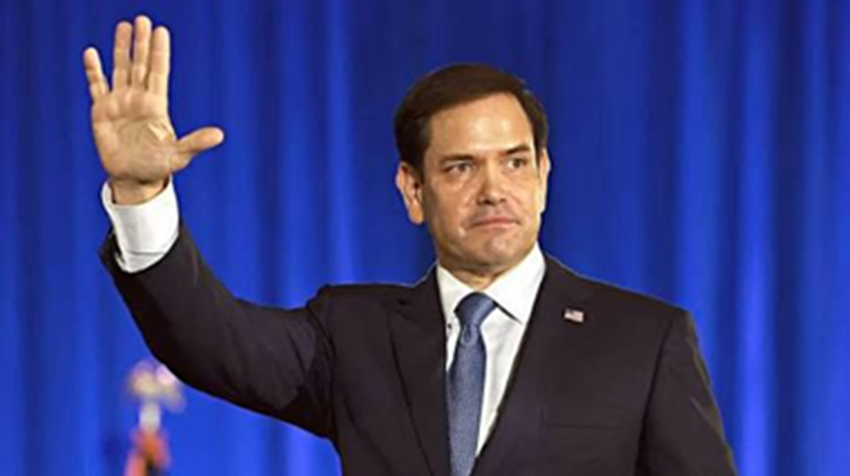Yonatan Dubi, professor of chemistry at Ben-Gurion University, speaks at the "Progressive and Anti-Israel Trends in Academia" conference, March 17, 2024. Photo by David Isaac.
Israeli academics, dismayed at progressive politics’ takeover of higher education, particularly in America, gathered to discuss the implications for the Jewish state, at a symposium held by the Argaman Institute in Tel Aviv on March 17. The symposium also addressed the impact of left-wing radicalism within Israeli universities.
The half-day conference, titled “Progressive and Anti-Israel Trends in Academia: How did U.S. universities become the frontline in the pro-Palestinian struggle,” was a direct reaction to the scenes still playing out on U.S. campuses amid Israel’s war with Hamas, with students displaying open support for the terrorist group.
Most worrying, the more elite the school, seemingly the more acute the problem. Chants of “from the river to the sea, Palestine will be free”—an eliminationist slogan calling for the destruction of Israel—have echoed in every Ivy League courtyard in the aftermath of Hamas’s Oct. 7 massacre.
“We always knew there was a problem with left-wing bias in academia. What really made us understand the importance of having this conference was the reaction, mainly in the United States, to Oct. 7,” said Sagi Barmak, who helped organize the conference and runs several programs for the Argaman Institute, a center established by the U.S.-based Tikvah Fund to familiarize Israeli students with conservative and classical liberal thought.
“There was a show of appreciation, understanding and even sympathy [at U.S. colleges] for the monstrous acts of Hamas,” he told JNS. “This obligates one to ask the question: How can it be that precisely in academia, precisely in places that were founded on the ethos of the Enlightenment, precisely there you find quite a few students and faculty members who justify, explain away and whitewash the kidnapping, rape and murder of Jews?”
A raft of destructive ideas that fall loosely under the rubric of “woke” are to blame, he said. Those ideas undermine the United States, but some specifically impact negatively on Israel, which viewed through a woke lens is no longer a country founded by a people returning to its native land but a neo-colonialist white settler power which has stolen the land of an oppressed, non-white minority. (In 2016, Black Lives Matters groups signed on to a platform calling for ending U.S. foreign aid to Israel as it made the United States “complicit in the genocide taking place against the Palestinian people.”)
Hostility to religion is another element of left-wing ideology dangerous to Israel, according to Barmak.
“In the past, when American culture was very Christian, or religious, it had a kind of intuitive or sympathetic identification with the story of Israel. As the centrality of religion and Christianity crumbles—and among parts of the left there is no connection or desire for anything to do with religion—the question arises: Why should I actually support Israel? What is the logic of this whole enterprise?” he said.
If such ideas were contained within the halls of academia, it wouldn’t matter, he noted, but higher education has come to see its role as driving social change. The universities argue they’re in a unique position to solve society’s cultural, political and economic problems as they have analytical and theoretical research tools with which to change the world for the better.
Yonatan Dubi, a chemistry professor at Ben-Gurion University of the Negev, agreed with Barmak. According to the progressive worldview, universities are no longer “beacons for searching out and deepening knowledge” but rather “tools for social change,” he said.
“And the students are no longer students, they are ‘agents of change,’” he told the audience.
Dubi pointed to UNESCO, the United Nations Educational, Scientific and Cultural Organization, which has released a list of objectives related to its Sustainable Development Goals (SDG). UNESCO said that institutions of higher learning must use their knowledge “to help solve some of the world’s greatest problems as addressed by the SDG goals.”
“How do I even know if my research on chirality-induced spin-selectivity is relevant to the goals [of SDG]?” he asked.
Haifa University has already signed on to the UNESCO statement, and Dubi predicted that all Israeli universities would soon follow. It’s not a stretch to one day see universities with commissar-like deputies deciding what can and cannot be researched, he warned. “We’re going there if we don’t fight,” he said.
“It’s the politicization of the academy,” Dubi told JNS. “It’s certainly happening in the ‘soft’ sciences, but whoever thinks that the natural sciences, the STEM [fields], are immune to this process is deluding himself.”
Dubi provided some painfully humorous examples of how political correctness has entered the hard sciences, listing “do’s and don’ts” when submitting papers to The Journal of Physical Chemistry, a 120-year-old periodical put out by the American Chemical Society.
For example, the journal recommends using “double-anonymized study” in place of “double-blind study” so as not to offend blind people, he said. Phrases such as “cast a dark cloud” shouldn’t be used either, but rather “created a tense atmosphere.”
One editor told Dubi to avoid the term “quantum supremacy” and to replace it instead with “quantum advantage.”
“Fifteen years ago, this was sporadic,” he said. “Today, it’s the standard.”
Last year, his chemistry department was told by management about a likely opening for a new faculty member, but that it would be “very likely” if the candidate was an Arab woman. For Dubi, the situation reached the point of absurdity when another faculty member asked at an appointments committee meeting, without a hint of sarcasm, “How are we to know which is worth more [of the two]—the woman or the Arab?”
While the question elicited laughter from the audience, Dubi said introducing such criteria into the selection process prevents the department from hiring the best people.
“When I’m looking for a candidate, their gender doesn’t concern me, only their achievements,” he said.
While the conference’s participants agreed that wokeness hasn’t taken root in Israel as it has in the United States, they noted that Israel’s institutions of higher learning share the same homogeneous left-wing groupthink as those in the States.
Moshe Cohen-Eliya, an expert in constitutional law and former president of the College of Law and Business in Ramat Gan, expressed pessimism regarding both Israel and America in terms of changing the direction of its academic institutions.
“Almost all of the academy, 99%, is controlled by the left, and not just the left, the radical left,” he said. “I think there’s almost no way to change it, neither in the United States nor in Israel, because it’s people. It’s not a structure. And we’re talking here about thousands of people…and they don’t hesitate to use their power to achieve their political goals.”
For a moment, he thought Oct. 7 would be a “turning point” as the presidents of Harvard and the University of Pennsylvania were let go, and donors abandoned those schools in protest against their anti-Jewish climate, but “nothing has changed.” He pointed to the failure of hedge fund billionaire Bill Ackman and tech tycoon Mark Zuckerberg to get their candidates on Harvard’s Board of Overseers.
In terms of what could be done, participants differed. Cohen-Eliya argued that conservatives should put their efforts into creating new institutions, pointing to the University of Austin in Texas as a model, whose founders include Peter Boghossian, Aayan Hirsi Ali and Lawrence Summers.
Odelia Mines, senior lecturer and academic director of the Faculty of Law at Ono Academic College near Tel Aviv, called for more competition, which she said would lead to a diversity of ideas.
Israel’s greatest obstacle to introducing competition in academia is its Council for Higher Education, which has been granted too much power, she said. The council is staffed by the leaders of the very institutions that have a direct interest in preventing new ones from emerging. While all institutions want to hold on to power and suppress competition, “at least in the private sector, there isn’t a board of merchants deciding who gets in and who stays out,” she said.
“In short, we have here a situation where the cat is guarding the cream, and this whole mechanism is tainted by conflicts of interest,” she added.
Mines said it would also help to invest in more think tanks and institutes to give conservative academics and researchers a place to publish and reach a wider audience.
She stressed the importance of starting people on the path to critical thinking in childhood.
“I think that educational initiatives should be initiated at much earlier stages,” she said.
This was the key message of Mitchell Rocklin, director of the Jewish classical education concentration track at the University of Dallas, who called for “opening new educational institutions to educate our children before they reach academia so that they will be better prepared for it, for life in general.”
“One of the reasons we have a lot of problems here is because people come to academia without knowledge or the ability to think. They don’t learn anything in school,” he said.
Rocklin wants to bring about a renaissance in Jewish education, merging Jewish and classical studies to form a broad-based curriculum that covers everything from Judaism to proof-based mathematics to the history of art and classical music.
“Whoever comes to university with this type of education is already immune to brainwashing,” he said. “We can fight indoctrination by offering a real classical education.”
“We must do this. And with your help, we will succeed both in the U.S. and here in Israel,” he said.
Source: JNS



































